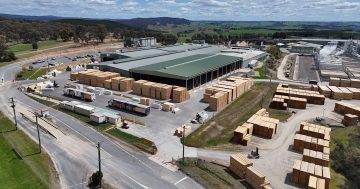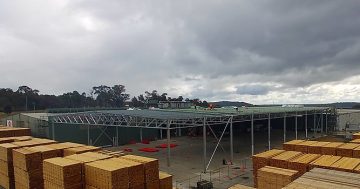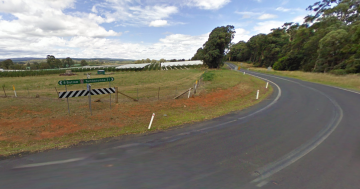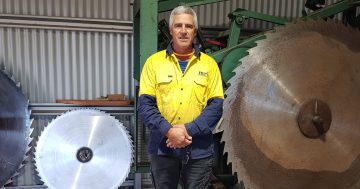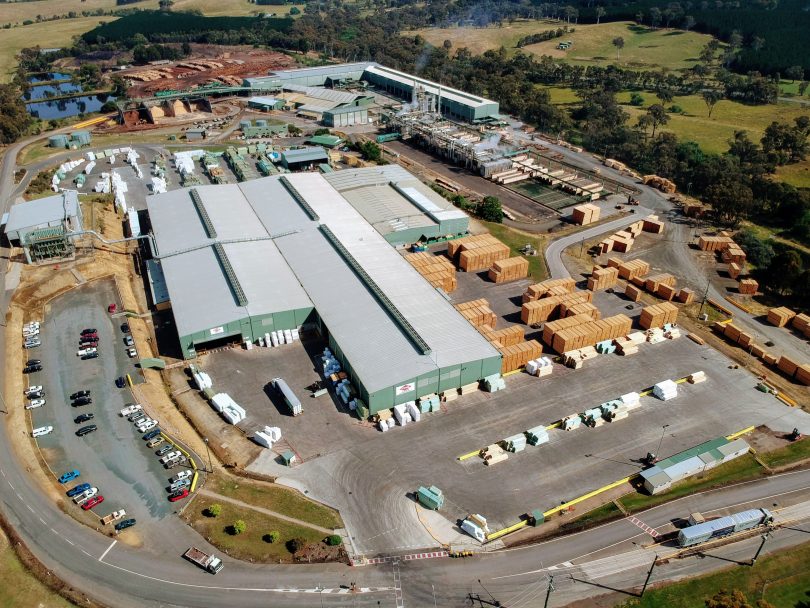
Owners of Hyne Timber at Tumbarumba have their fingers crossed the NSW Government will approve a $10 million grant, which will help them secure vital timber bound for China. Photo: Hyne Timber.
The family-owned 138-year-old Hyne Timber company is continuing to call for government support to direct Australian saw logs destined for China to their mill in Tumbarumba.
Chief Executive Officer Jon Kleinschmidt said employees and the community were increasingly concerned about the mill’s future following last summer’s devastating bushfires, which decimated 40 per cent of Hyne’s local log supply.
Following discussions with private growers in Victoria and South Australia, Hyne Timber has confirmed at least 441,000 cubic metres of sustainably grown, plantation pine can be made available to the mill over the next three years.
But, with no Australian customer, the timber is exported to China.

Tumbarumba Mill employees James Davies and partner Jo-Anne Crane rely on the mill to support their young family. Photo: Hyne Timber.
With government support, Mr Kleinschmidt said Hyne Timber could secure those logs for the Tumbarumba Mill which, in turn, would secure 181 jobs directly and ensure $70 million in wages and salaries continued to flow into the local economy.
The additional logs would be processed at the mill to supply quality, sustainably grown, Australian timber for 10,000 new homes which would otherwise use imported timber.
A further 199 jobs, he said, would be secured indirectly.
The timber by-products would also support the economy with an estimated 104,526 tonnes of chip supplied to Visy in Tumut for paper and packaging production and up to 24,457 more tonnes of bark for commercial applications including potting mix.
Dried wood shavings customer David Shandley has further warned of disruption to the food supply chain as a result of the bushfires and the impact on by-product availability.
“Shandleys Transport buy 100 per cent of Hyne’s dried wood shavings, used as animal bedding for commercial food producers, and supplying the major supermarkets nation-wide,” Mr Shandley said.
“The 441,000 cubic metres of additional log volume means 14,109 more tonnes of dried wood shavings, supporting jobs in Holbrook and beyond.
“We hope the government will work with Hyne to protect our supply chains and secure the flow of Australian logs, timber and by-product to benefit our own economy and regional communities.”
Tumbarumba Mill employees James Davies and partner Jo-Anne Crane rely on the mill for their household income to support their young family.
Their daughter, Alice, the latest addition to the family, was born in Wagga while the family were evacuated in January due to the bushfires.
Mr Davies said he spent his working days looking to optimise performance at the $200 million enterprise.
“This is a state-of-the art sawmill designed for high speed processing of large volumes of softwood,” he said, “therefore, the solution for our bushfire recovery and jobs is getting logs to the mill. There is no alternative.
“There were rumours there were no more saw logs available but, thankfully, this simply isn’t true.”
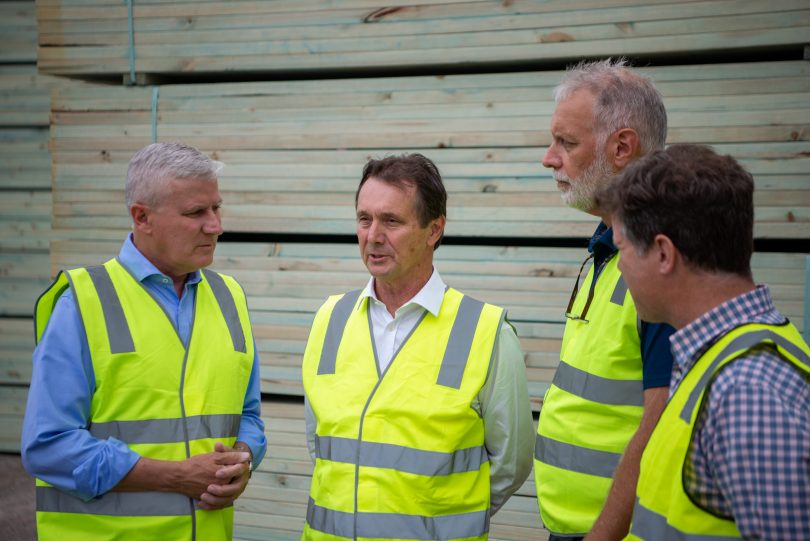
On site at Hyne Mill in Tumbarumba (from left) Federal Member for Riverina Michael McCormack, Snowy Valley Mayor James Hayes, Hyne Timber CEO Jon Kleinschmidt and State Member for Albury Justin Clancy. Photo: Hyne Timber.
Mr Davies said he and his colleagues hoped massive job losses at Tumbarumba were avoidable.
It appears the future lies in the hands of the NSW and Federal governments.
The mill needs both governments to fund 41 per cent of the freight costs at a cost of $29 million.
“If we can secure just under $10 million from the Berejiklian Government and a further $18.9 from the Morrison Government over three years on top of our own investment of over $42 million, we can freight these logs to Tumbarumba, retain hundreds of jobs and convert this investment into an estimated $173 million for the Australian economy,” Mr Kleinschmidt said.
“The fact is, as long we allow saw logs to be exported to China, there will be jobs lost in Tumbarumba, manufacturing resilience will be significantly impacted, and we simply cannot allow this to happen.”
Mr Kleinschmidt said the mill continued to communicate transparently with its employees and Tumbarumba community stakeholders
“They remain committed to supporting us during this bushfire recovery,” he said, “but there is only so much we can do in the face of this year of disasters – we can’t achieve this without government support.”







